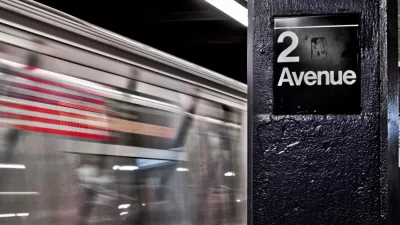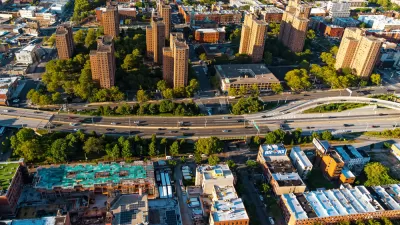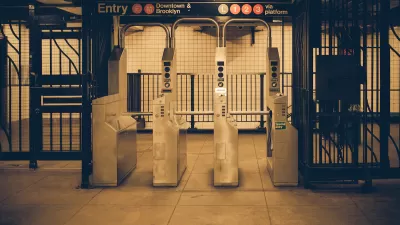With the MTA comprising a significant portion of the city's workforce and viability, NYC mayoral candidates remain reluctant to commit to invest in the transit authority. Their comments at a recent transit forum disappointed advocates.
The next mayor of New York City will inherit 100-year-old transit infrastructure and a radical shift in commute patterns. Rather than commuting into Manhattan, New Yorkers are doing a lot more intra-borough commuting, increasing their reliance on buses to get around.
Mayoral candidates appeared at a forum on transportation last month, but rather than discussing visionary, large-scale infrastructure projects, they discussed peripherals and were hesitant to commit to spending projects.
Mayor Bloomberg will be leaving behind an active transit legacy, albeit a Manhattan- and private developer-centric legacy (according to critics), having spearheaded the extension of the 7 train line, the planning of seven BRT routes (two are already up and running), an expanded network of bike lanes and his failed congestion pricing plan.
Transit experts responding to the lukewarm stance of mayoral candidates at the transit conference think this would be a good time for the city to invest in long-term infrastructure, such as the Triboro RX, a proposed rail connection between the Bronx, Queens and Brooklyn along an existing right-of-way.
The city faces the added challenge of having no direct oversight over the MTA, which is run by the state with little regard for the transit authority's dwindling funds and substantial debt, critics say. However, the city can choose to invest in expanded services like BRT and in reducing the cost of public transport, experts say.
FULL STORY: The mayoral race and the state of transit in new york

Planetizen Federal Action Tracker
A weekly monitor of how Trump’s orders and actions are impacting planners and planning in America.

Maui's Vacation Rental Debate Turns Ugly
Verbal attacks, misinformation campaigns and fistfights plague a high-stakes debate to convert thousands of vacation rentals into long-term housing.

San Francisco Suspends Traffic Calming Amidst Record Deaths
Citing “a challenging fiscal landscape,” the city will cease the program on the heels of 42 traffic deaths, including 24 pedestrians.

Amtrak Rolls Out New Orleans to Alabama “Mardi Gras” Train
The new service will operate morning and evening departures between Mobile and New Orleans.

The Subversive Car-Free Guide to Trump's Great American Road Trip
Car-free ways to access Chicagoland’s best tourist attractions.

San Antonio and Austin are Fusing Into one Massive Megaregion
The region spanning the two central Texas cities is growing fast, posing challenges for local infrastructure and water supplies.
Urban Design for Planners 1: Software Tools
This six-course series explores essential urban design concepts using open source software and equips planners with the tools they need to participate fully in the urban design process.
Planning for Universal Design
Learn the tools for implementing Universal Design in planning regulations.
Heyer Gruel & Associates PA
JM Goldson LLC
Custer County Colorado
City of Camden Redevelopment Agency
City of Astoria
Transportation Research & Education Center (TREC) at Portland State University
Jefferson Parish Government
Camden Redevelopment Agency
City of Claremont





























